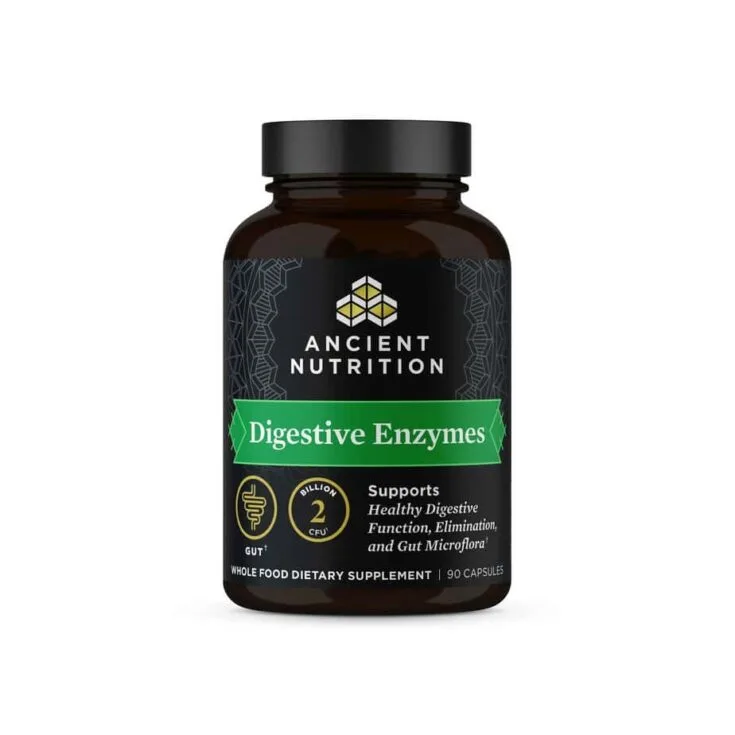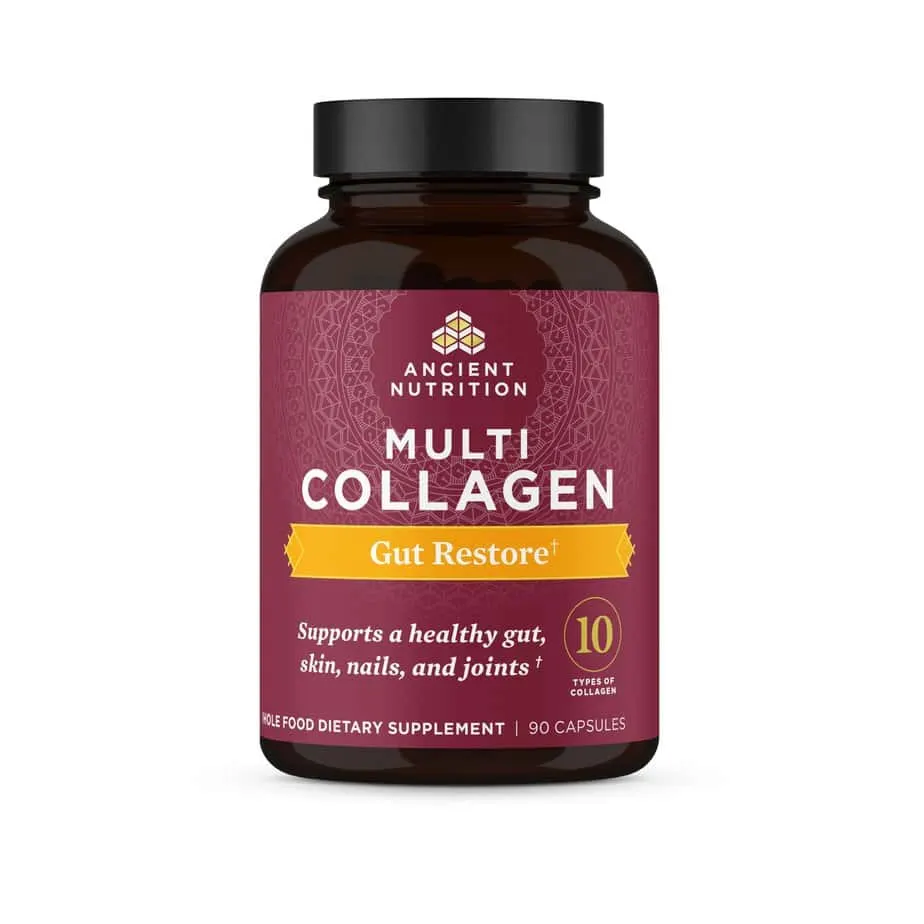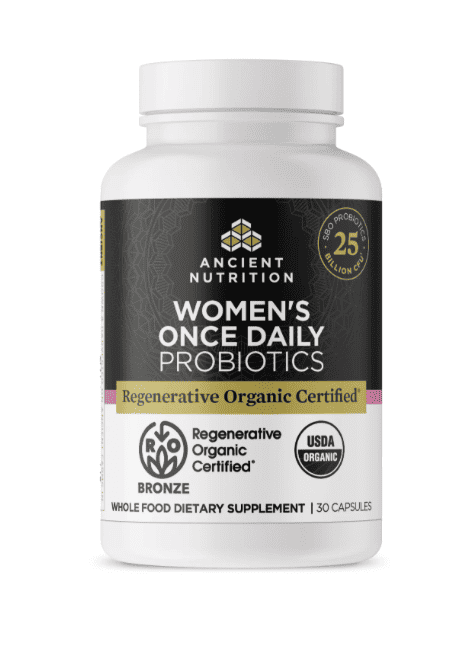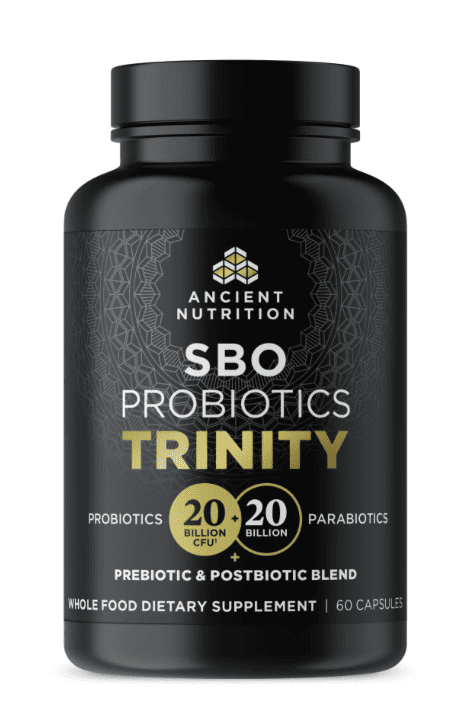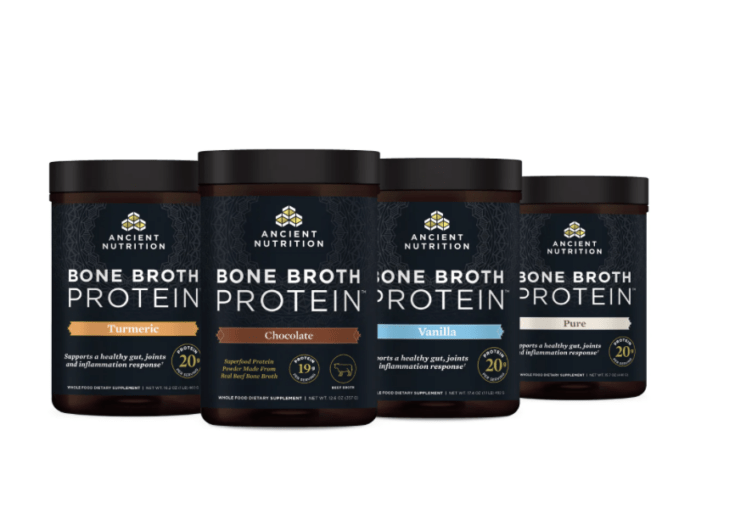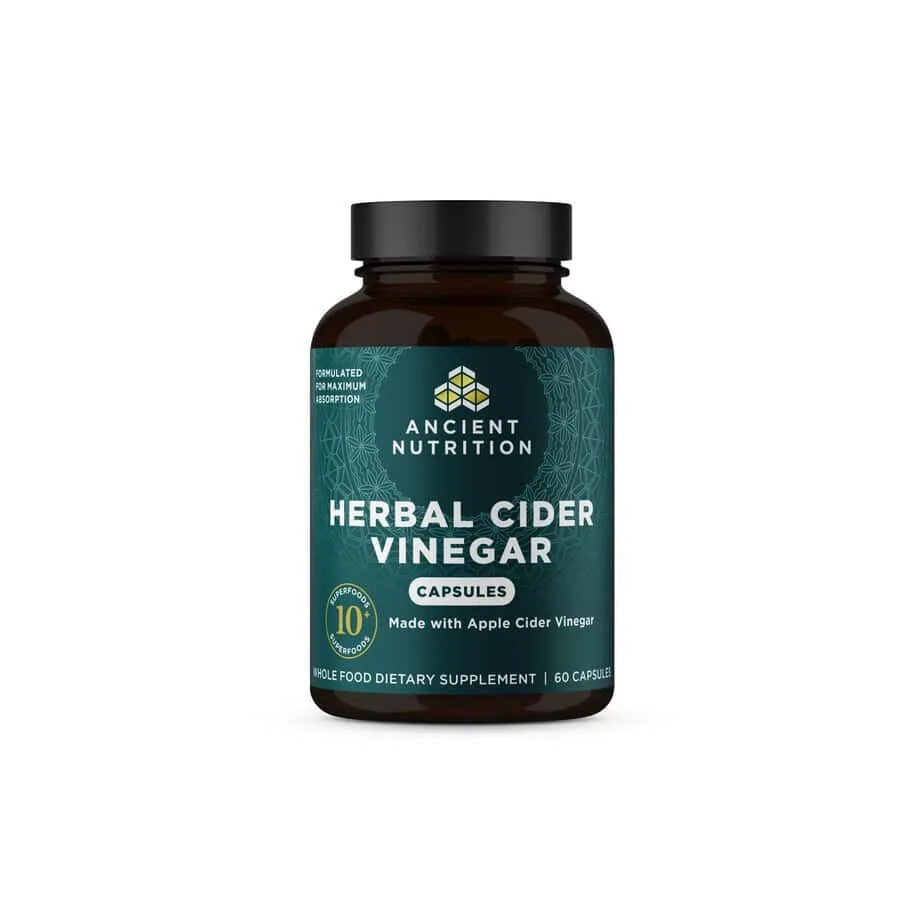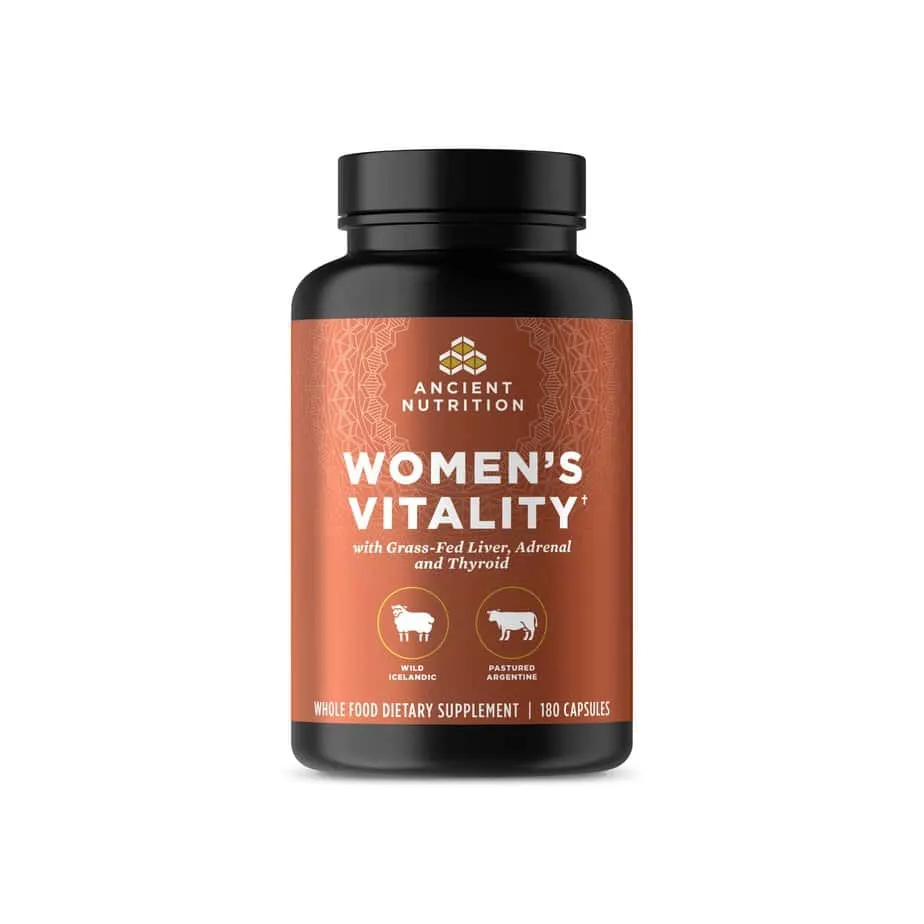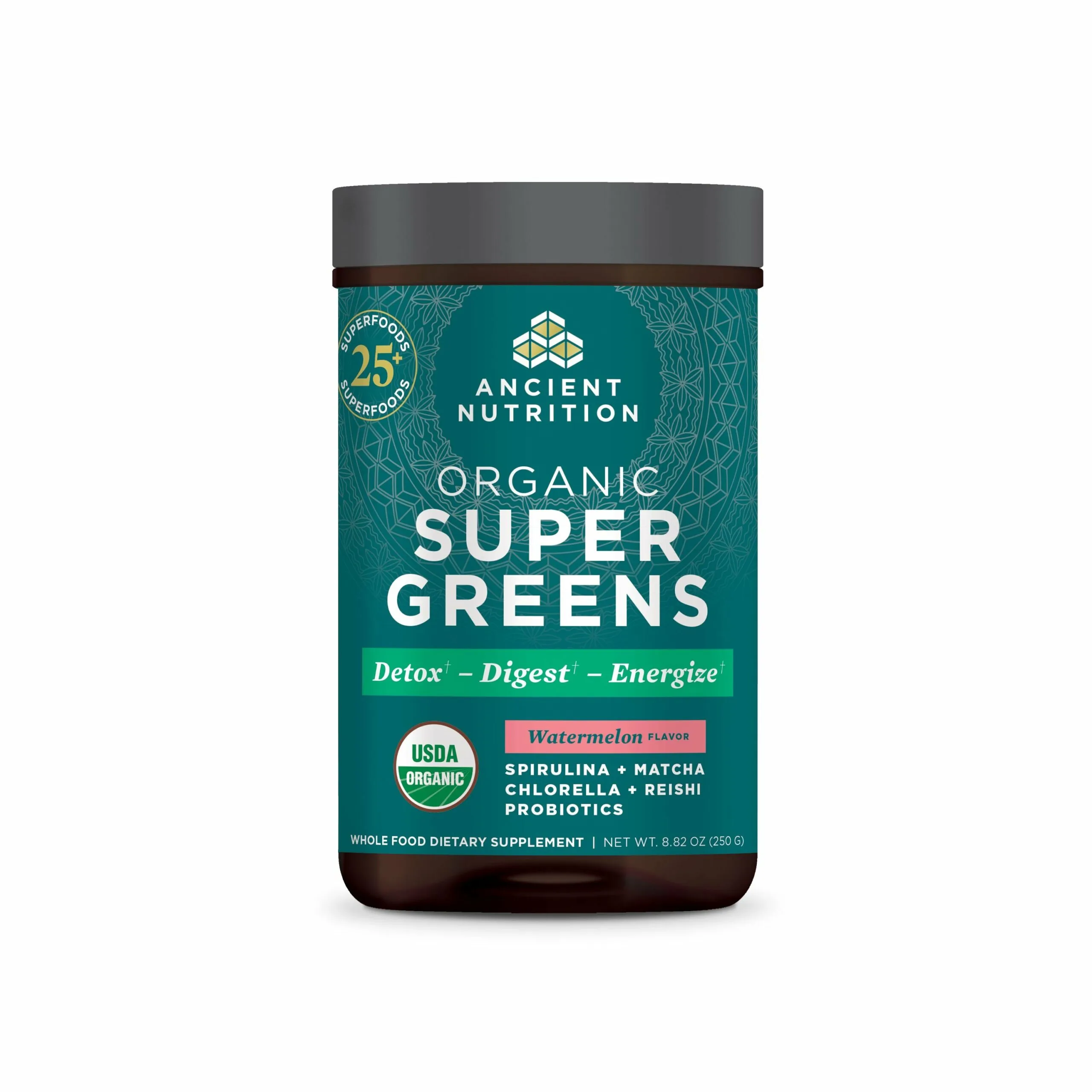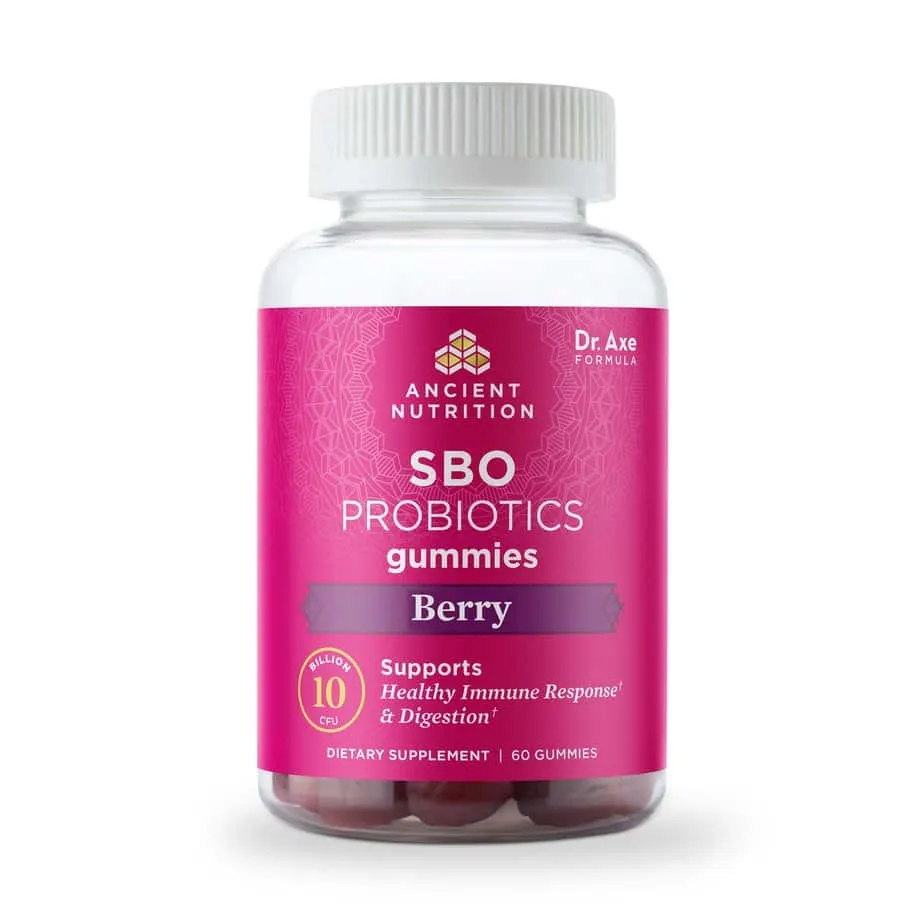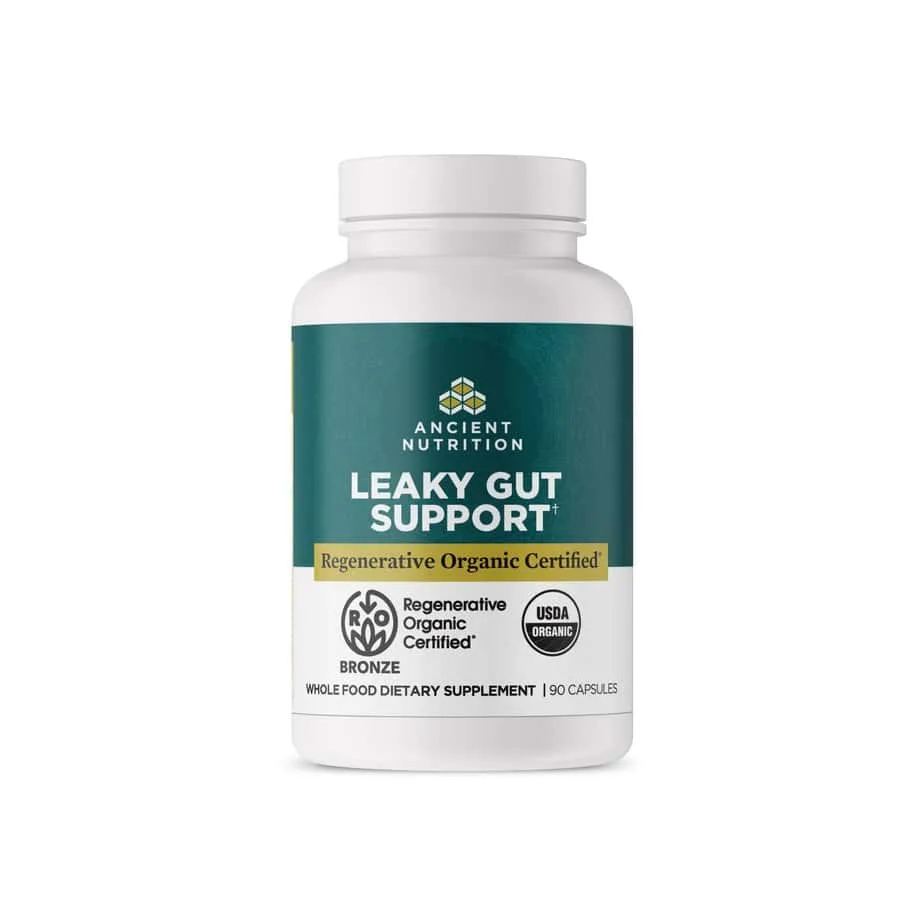I have had digestive issues most of my life. I remember drinking a tall glass of milk as a child and immediately getting a stomach ache afterwards, not previously knowing that milk bothered me. When I was a teenager, I often had stomach aches in school and could not really pinpoint what was causing them. Fast forward to when I was pregnant for the first time, at age 26, I freely ate foods that were "off limits" before with no problem. If I was craving ice cream, I had ice cream. I don't recall having stomach aches during any of the three times that I was pregnant, in fact.

*I am not a doctor or a medical professional and the information in this post are not meant to treat or diagnose. See a physician if you have questions or concerns. This post has been brought to you by Ancient Nutrition
After our first son was born, I went to the healthcare provider with Baby Boy in a stroller, because I knew that my digestive health wasn't good. I suffered abdominal pain, upset stomach, and other undesirable digestive symptoms. The doctor dismissed it and said it wasn't a problem unless I had 8 bowel movements or more in a day. I felt defeated and ignored.
Not long after, I became pregnant with our second son. Again I resumed eating all the dairy and anything that I wanted without issues. I did have acid reflux, but I assumed that was from the large baby living in my body. Heartburn is common in pregnancy, of course.
After our third son was born, my abdominal discomfort became worse. However, it was not as easily managed now that we had three young sons to take care of. It was more than the occasional bloating or an occasional stomach ache after eating spicy foods, it was becoming a daily, time consuming question of "what should I eat?" and "what can I do?"
When our third son was a baby, I went to a doctor who was determined to help. She ran a lot of tests, including a celiac disease blood test that came back negative. She did say that blood tests were often wrong, and when she felt she had exhausted all that she could do, sent me to gastrointestinal doctor. They decided to do an upper endoscopy to see if they could figure out what was going on. During this procedure, they did find that I had h pylori, a bacteria that could cause abdominal discomfort, bloating, nausea, vomiting and if left untreated, could cause stomach ulcers, but not the other symptoms I was there for. They prescribed a round of antibiotics to treat the h pylori, but that was it. They said if I continued having issues, to get a colonoscopy and they'd go from there, but that I likely "just" had IBS, irritable bowel syndrome.
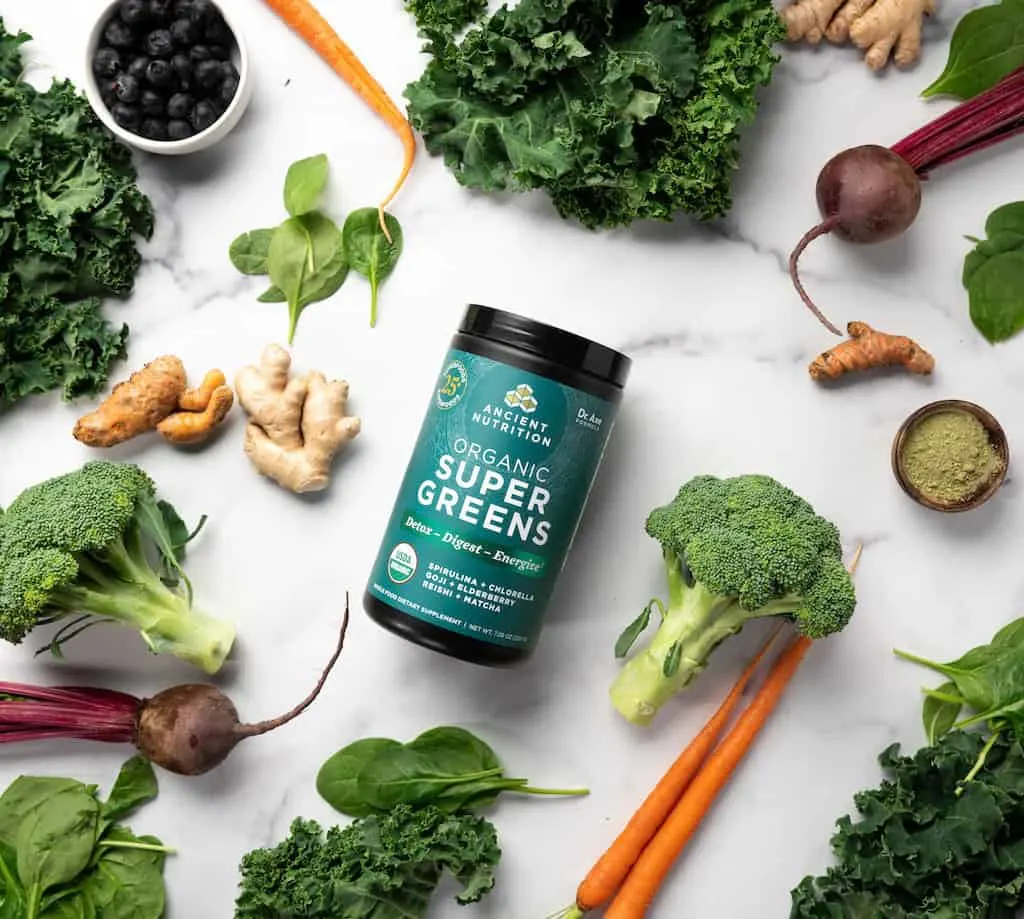
Fast forward to the fall of 2016, my husband and I went as volunteers to the Shiftcon conference, all about natural products and health. It was at this conference that I met a few bloggers who were gluten free. I actually got sick at this conference, and knew that I needed to make some lifestyle changes. It was then that I decided to just try eating gluten free. It was not easy, especially in a house full of people who loved their gluten, but I soon figured out what I could and could not eat, and my gastrointestinal health soon improved. I added in digestive enzymes and really was careful with what I ate.
I will take this time to say that before jumping into a gluten free diet or any type of elimination diet, you need to prepare yourself with foods that you can eat, read up on where you can eat when going out, etc. It is not easy at first, but there are many resources online and many, MANY more gluten free foods available at every store and restaurant than there were in 2016. It was basically a meat, vegetable, fruit diet for me back then, which in hindsight, prepared me for doing Whole30 later and was really a good thing for my gut health and overall health.
I have tried various dietary supplements over the years, all with the promise of alleviating the symptoms of irritable bowel syndrome. Some helped, some made it worse. So, while I am not a doctor or registered dietitian, I have lived through this struggle in my daily life. These are my experiences and everyone is different.

First step: Keep a food diary
If you are having stomach issues, the best way to find any triggers is to keep a food diary. Keep in mind that many adverse reactions to foods may be delayed, so keeping a precise food diary for 1-2 months can help you see patterns.
Second step: Do an elimination diet
If you notice that there are certain foods that are in this pattern of stomach issues, consider removing them, one at a time, from your diet, to identify if they are really the issue. Common triggers are: dairy products, eggs, onions, garlic, gluten, soy, spicy foods, fatty foods, acidic foods, artificial sweeteners, and high fiber foods. High fiber foods, really? Yes! It wasn't until one of our kids had 1-3 apples a day for a few weeks that we realized that wasn't as good of an idea as it seemed. He became constipated and had stomach aches that were quickly and easily remedied when we put him on an apple ban for a few days! He wasn't allergic to or intolerant of apples, he was just eating too many.
You will find that elimination diets can provide many health benefits. It is a good idea to keep your food diary still, and eliminate foods and then slowly reintroduce them, as is promoted in the Whole30 diet, or eliminate certain foods for 3 weeks and note if your symptoms remain or have improved.
Third step: Add in supplements to help with stomach issues
The good news for all of us that suffer from digestive distress is that there are companies and people who have put in the work to identify supplements that are best for our gastrointestinal tract.
- Probiotics: These are beneficial bacteria that can help restore the balance of gut flora, aiding in digestion and reducing symptoms such as bloating, gas, and diarrhea.
- Digestive Enzymes: Enzyme supplements can assist in breaking down food more efficiently, especially for individuals with conditions like lactose intolerance or pancreatic insufficiency.
- Peppermint Oil: Peppermint oil capsules may help relieve symptoms of irritable bowel syndrome (IBS), including abdominal pain, bloating, and gas, by relaxing the muscles of the digestive tract.
- Ginger: Ginger supplements or ginger tea can have anti-inflammatory and soothing effects on the digestive system, potentially easing nausea, indigestion, and stomach discomfort.
- Fiber Supplements: Soluble dietary fiber supplements, such as psyllium husk, can help regulate bowel movements and relieve constipation or diarrhea by adding bulk to the stool.
- Digestive Bitters: Herbal bitters supplements, containing ingredients like gentian root, dandelion, or artichoke, can stimulate digestive juices and enhance nutrient absorption, potentially improving overall digestion.
It's important to note that while supplements can be beneficial for some individuals with stomach issues, it's essential to consult with a healthcare professional before starting any new supplement regimen, especially if you have underlying health conditions or are taking medications. Additionally, supplements should complement a healthy diet and lifestyle, rather than replace them.
Here are some good recommendations from Ancient Nutrition:
These are the best supplements for stomach issues! Expertly formulated with fermented mushrooms, botanicals, enzymes, and probiotics to help you get the most out of the nutrients you’re eating. Packed with 10 types of collagen — plus gut-specific superfood ingredients — these groundbreaking capsules deliver real results in an ultra-convenient format. The first-ever combination of 30 total strains plus female health-supporting mushrooms, mycelium and vitamin D3 to support women's gut health and reduce occasional bloating (packed into just one convenient capsule!). Designed to support the overall health of your gut, this leaky gut supplement brings you time-tested superfoods that are optimized for absorption. SBO Probiotic contains: 50 billion CFU* SBO probiotics Bacillus subtilis and Bacillus coagulans Prebiotic superfoods That's not all. My SBO Probiotic includes a special Organic Fermented Botanical Blend for extra nutritional support and energy. Each flavor helps you maximize ways to incorporate 20g of delicious protein into your diet and nourishing collagen to support a healthy gut and more comfortable joints. Use chocolate and vanilla for coffee, smoothies and baking and pure and turmeric to add to sipping broths or to enhance your favorite savory dish. Meet apple cider vinegar with a superfood twist. This unstoppable blend brings you the time-honored genius of apple cider vinegar, plus a regenerative blend of antioxidant-filled superfood ingredients. History’s most nutritious superfoods, now for the modern diet. This female-specific blend of 13 organs and glands, including adrenal and thyroid to support healthy bones, hormones, energy and more. Reduces occasional constipation, gas & bloating Designed to give you the benefits of juicing every day (without the hassle), Organic SuperGreens is the easiest, tastiest way to get 25+ superfoods. Supports healthy detoxification These deliciously bite-sized probiotic gummies combine tough, effective probiotic strains for comprehensive gut support beyond just digestion. Designed to calm and soothe your gut, this first-ever formula is packed with Regenerative Organic Certified® herbs and mushrooms that are optimized for absorption to support your gut health.Best Supplements for Stomach Issues: Guide to Gut Health
Supports healthy digestive function
Reduces occasional constipation, gas & bloating
Helps to maintain healthy gut microflora

